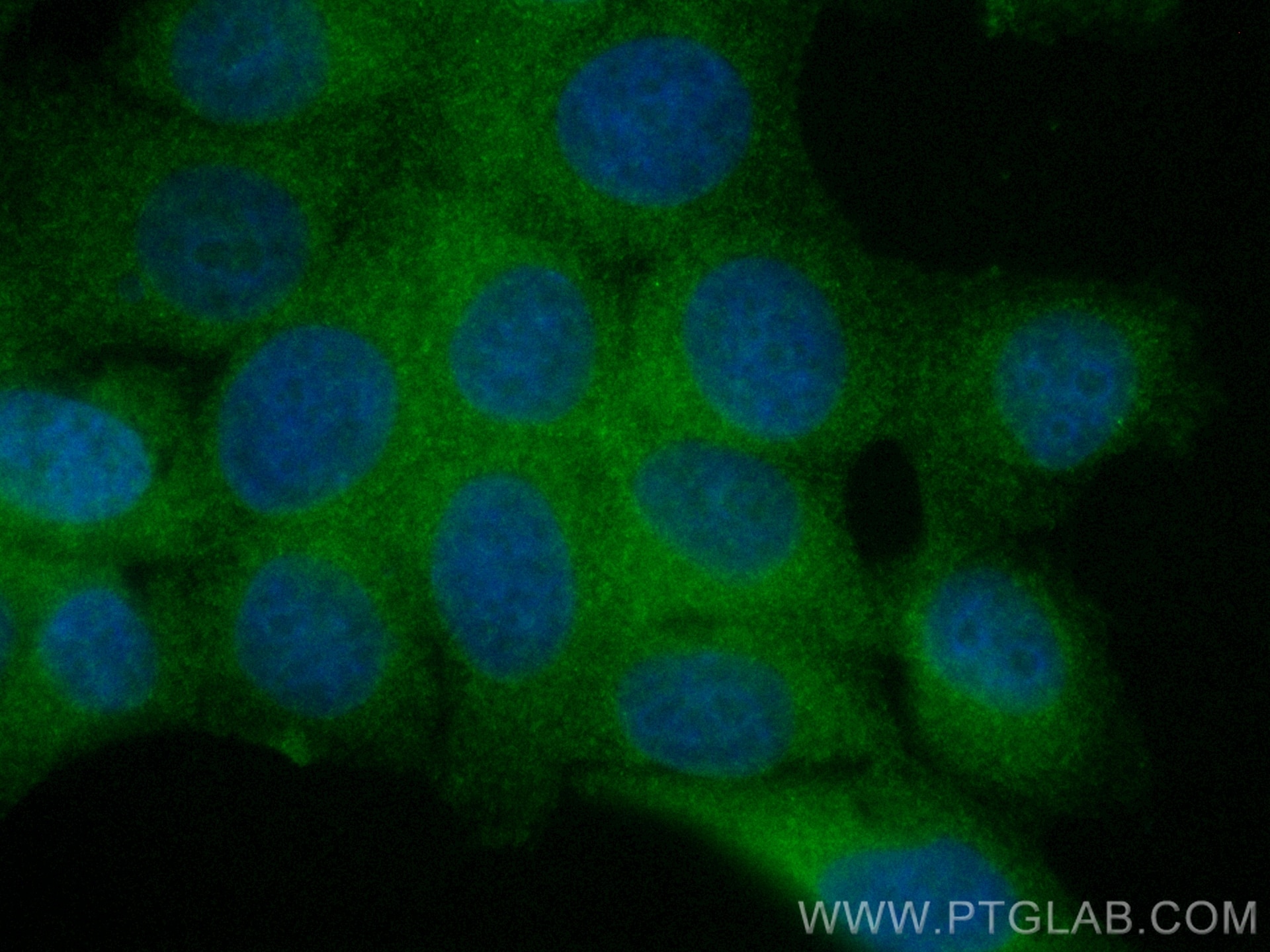Anticorps Recombinant de lapin anti-METTL2
METTL2 Recombinant Antibody for IF/ICC
Hôte / Isotype
Lapin / IgG
Réactivité testée
Humain
Applications
IF/ICC
Conjugaison
CoraLite® Plus 488 Fluorescent Dye
CloneNo.
241490A3
N° de cat : CL488-84257
Synonymes
Galerie de données de validation
Applications testées
| Résultats positifs en IF/ICC | cellules MCF-7, |
Dilution recommandée
| Application | Dilution |
|---|---|
| Immunofluorescence (IF)/ICC | IF/ICC : 1:50-1:500 |
| It is recommended that this reagent should be titrated in each testing system to obtain optimal results. | |
| Sample-dependent, check data in validation data gallery | |
Informations sur le produit
CL488-84257 cible METTL2 dans les applications de IF/ICC et montre une réactivité avec des échantillons Humain
| Réactivité | Humain |
| Hôte / Isotype | Lapin / IgG |
| Clonalité | Recombinant |
| Type | Anticorps |
| Immunogène | METTL2 Protéine recombinante Ag10410 |
| Nom complet | methyltransferase like 2B |
| Masse moléculaire calculée | 313 aa, 36 kDa |
| Poids moléculaire observé | 36~43 kDa |
| Numéro d’acquisition GenBank | BC107586 |
| Symbole du gène | METTL2B |
| Identification du gène (NCBI) | 55798 |
| Conjugaison | CoraLite® Plus 488 Fluorescent Dye |
| Excitation/Emission maxima wavelengths | 493 nm / 522 nm |
| Forme | Liquide |
| Méthode de purification | Purification par protéine A |
| Tampon de stockage | PBS with 50% glycerol, 0.05% Proclin300, 0.5% BSA |
| Conditions de stockage | Stocker à -20 °C. Éviter toute exposition à la lumière. Stable pendant un an après l'expédition. L'aliquotage n'est pas nécessaire pour le stockage à -20oC Les 20ul contiennent 0,1% de BSA. |
Informations générales
METTL2A and METTL2B are required for the threonyl and argininyl tRNA methylation. METTL2 methyltransferase is responsible for 3-methylcytosine modification of arginine tRNAs in mammals. METTL2A and METTL2B are in higher homology 99%. This antibody detects both METTL2A and METTL2B.
Protocole
| Product Specific Protocols | |
|---|---|
| IF protocol for CL Plus 488 METTL2 antibody CL488-84257 | Download protocol |
| Standard Protocols | |
|---|---|
| Click here to view our Standard Protocols |


